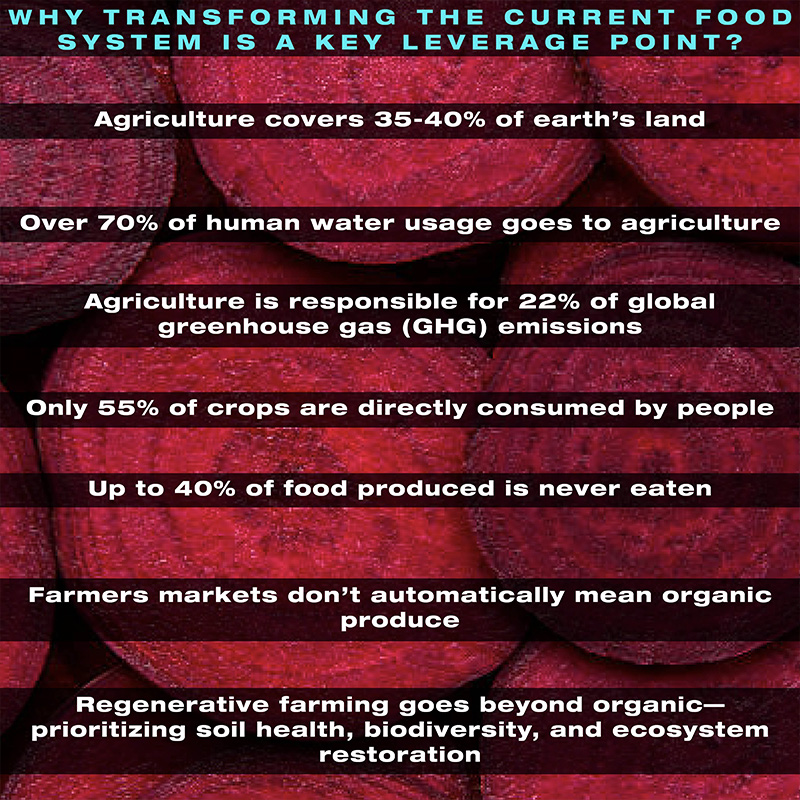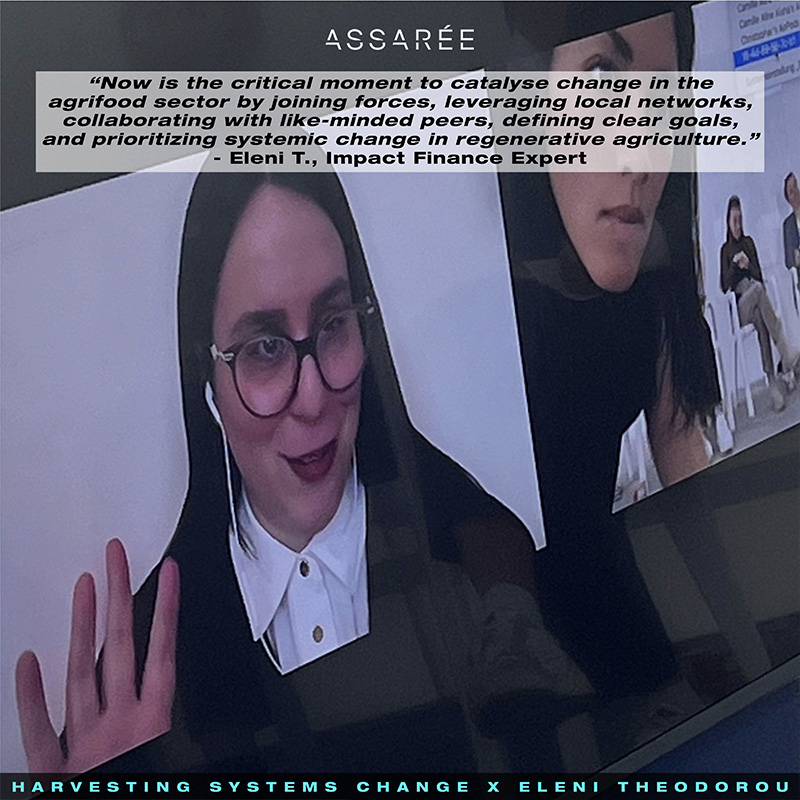Regenerative agriculture restores healthy soils, reduces pollution, enhances biodiversity, and promotes equity—all while capturing carbon and helping farmers adapt to climate change. But it’s more than just environmental benefits; it’s a mindset shift. This approach fosters a more holistic, reciprocal relationship with the land and the communities that rely on it.
In addition, conventional agricultural practices have introduced toxins from pesticides into our food systems, contributing to a global health crisis. These toxins are linked to endocrine disruption, which affects hormone regulation and has profound implications for human health. Regenerative agriculture addresses this by eliminating harmful chemical inputs, creating healthier soils, and producing cleaner, safer food for everyone.
BECAUSE HEALTH IS WEALTH!
“Now is the critical moment to catalyse change in the agrifood sector by joining forces, leveraging local networks, collaborating with like-minded peers, defining clear goals, and prioritizing systemic change in regenerative agriculture.” – Eleni T., Impact Finance Expert
Leverage local networks: Connect with regional impact finance networks to identify co-funding opportunities.
Collaborate with peers: Build relationships with like-minded individuals committed to impact investing.
Start small: Define goals, begin with focused projects, and scale successful strategies.
Invest in systemic solutions: Prioritize funding for long-term projects that address systemic challenges in the agrifood sector and scale regenerative agriculture solutions.
BECAUSE WE ARE WHAT WE INVEST IN!

























